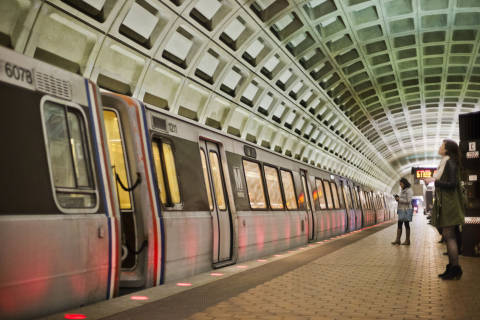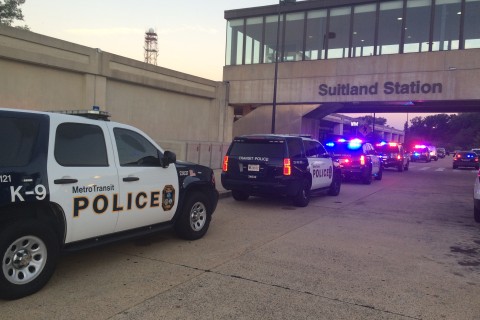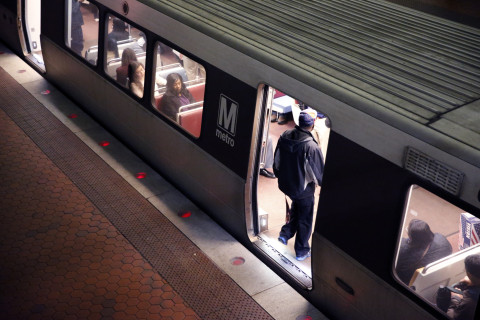WASHINGTON — A higher proportion of Metro riders and workers were injured in July, August and September than in the same period last year, Metro’s quarterly safety report shows.
For riders, Metro recorded 1.86 injuries per million passenger trips over the three-month period, 11 percent higher than a year earlier. The change is less dramatic when comparing year-to-date numbers: There have been 2.08 injuries per million trips through the end of September, compared with 2.05 through this point last year.
On Metrobus, lower ridership translated to a 2 percent higher customer injury rate this year than last, despite a drop in the overall number to 74 reportable injuries. The injury rate for bus riders is 2.29 per million passengers, half due to crashes where the bus driver was not at fault.
On the rail system, the rider injury rate is up 8 percent from the same period last year, again despite a drop in the actual number of injuries. Fifty-three reportable injuries over the three months — nearly all of them slips, trips or falls — led to an injury rate of 1.19 injuries per million trips.
MetroAccess injuries are, again, up sharply from last year. The 3.08 injuries per 100,000 trips in the quarter is 60 percent higher than the same period in 2015.
The employee injury rate also rose sharply again in the quarter — up 15 percent from the year before. Metro recorded 5.69 injuries per 200,000 hours worked in the three-month period, which brings the rate to 5.4 for the year. That year-to-date injury rate is up 2 percent from the same point last year.
The bus division recorded the largest number of employee injuries in the quarter, but a number of rail employees were hurt on the road.
Several workers were injured in car crashes “while delivering materials to the job sites” for round-the-clock track work; other track work-related injuries were tied to “improper tool use.”
Metro has acknowledged that a small but significant number of workers are not wearing proper protective gear.
Other rail worker injuries include train operators hurt while trying to pull a bulkhead door open or stress from witnessing suicides or crime.
Metro plans to have maintenance crews review the resistance on bulkhead door closers.







